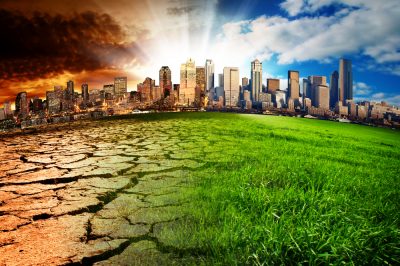State sovereignty and the environment are important and interconnected factors shaping global politics. As defined by Carl Schmitt, sovereignty refers to the energy to decide the kingdom of exception, permitting the authority to droop or alter laws throughout emergencies or crises. Meanwhile, the surroundings are all the physical and natural elements surrounding dwelling matters. Inside the modern world, their relationship has significant implications that increase beyond conventional ideas of political power.
The environment plays a giant role in shaping the exercise of state sovereignty. As Saskia Sassen notes, the states regularly locate their sovereignty reconstituted and, in some instances, dwindled in the face of environmentally demanding situations. Environmental problems, including weather change, deforestation, and air pollution, are worldwide and require collective movement from populations internationally. To deal with global environmental concerns effectively, sovereign bodies ought to express their strength by spotting the shared responsibility of all parties.
Mass migration brought on by environmental degradation has had devastating effects on national sovereignty. An increasing number of people were displaced from their houses because of ecological causes, including weather exchange, floods, deforestation, or resource depletion, placing pressure on host nations’ sources, infrastructure, and governance structures.
Crop failures added on through shifts in climate patterns significantly contribute to food lack of confidence in risky climates. As a result, there can be a strain on urban infrastructure as more people pass there. The Syrian Civil Conflict of 2011 illustrates how weather trade and drought contributed to the escalation of political tensions, an epidemic of civil discontentment, and the draining of government resources, all threatening countrywide sovereignty.
Rising sea degrees and weather trade provide significant difficulties for small island republics like Kiribati and the Marshall Islands, positioned within the Pacific Ocean. The upward push of the sea level threatens to submerge numerous states, making them uninhabitable. Because of this existential hazard, a few humans leave the state looking for higher living requirements. Both the home and host states face disturbances to their sociopolitical and socioeconomic setups, potentially threatening their sovereignty.
Moreover, as mind drain rises because of climate troubles in some nations, losing talent pools in many countries impacts the concept of sovereignty. In the case of Puerto Rico, we can study the effect of environmental elements within the shape of a brain drain. After Hurricane Maria’s 2017 destruction, the island territory of Puerto Rico in the Caribbean is already coping with many environmental problems.
The storm brought on the deaths of 2,975 people and $91.61 billion in damages to infrastructure. Many humans relocated to look for a higher standard of living and more job possibilities. Due to the contemporary mass exodus, many extraordinarily knowledgeable humans, docs, engineers, and educators have left the island. In the six months after the disaster, one hundred thirty-five Puerto Ricans migrated to the USA. Indirectly, the loss of skills because of immigration threatens Puerto Rico’s sovereignty.
Also Read: China-Pakistan building AI smart city within BRI
Poisonous Surroundings and The Teenagers
Air pollution, poisonous publicity, and a lack of right of entry to secure ingesting water and sanitary facilities are a few environmental factors that may negatively affect children’s fitness and development. Due to the fact their immune systems and other physiological techniques are still maturing, kids and young adults are especially prone to the outcomes of environmental hazards. The ecological effects on kids’ fitness can affect a country’s sovereignty, as evidenced using the case of lead poisoning in Flint, in jap Michigan, to which 99,000 people have been exposed. After a source switch in 2014, lead appeared in the metropolis’s water supply.
Young people’s exposure to guidance in ingesting water has been connected to an expansion of terrible effects, inclusive of cognitive impairments and developmental delays. However, in evaluation, there was a developing attention and concern amongst younger humans in recent years regarding environmental issues, including climate trade and environmental degradation. It is usual for more youthful human beings to spearhead movements or projects so that they will have an enduring effect. By elevating the focus on environmental problems and influencing public opinion regarding how to address them through policymaking, they can affect trade on the governmental level.
Economic Effect
There’s the capacity for economic increase because of climate alternates. For instance, energy conservation and renewable energy production may stimulate economies and put people to work. States and groups can take motion by switching to green farming techniques, funding more resilient crop types, and employing more green irrigation systems. Those modifications can improve agricultural output, food safety, and people’s fashion of residing.
Lower fertility rates added on by climatic exchange can benefit countrywide independence. They permit girls to be aware of their schooling, careers, and family planning. As a larger percentage of the population enters the operating group, the country’s economy evolves to improve. Lesser sources are ultimately spent on childcare and poverty discounts.
So, one can efficaciously cope with the interconnectedness of sovereignty and the surroundings; states have to expand complete weather nomadism policies to aid displaced populations and enforce climate adaptive and resilient rules to guard susceptible island states against the catastrophic results of growing sea levels. States should additionally establish talent retention and brain advantage initiatives to prevent brain drain caused by weather issues, improve environmental health rules to shield adolescents from harm and sell environmental activism amongst young people.
Additionally, imposing regulations that aid sustainable agriculture practices, dispense incentives for renewable power shifts, and fulfill worldwide weather protocols can contribute to ensuring an extra sustainable destiny. Countries must balance their authority and shared responsibility to address international environmental demanding situations, enhance sustainability, and ensure the proper well-being of gift and destiny generations. This requires a reevaluation of conventional notions of political power.
However, as recognition grows about the want for collaborative efforts and mutual accountability in addressing environmental problems, an apparent shift is occurring in the dating between sovereignty and the surroundings. Creating a future in which strength and environmental protection coexist peacefully is viable by imposing sustainable practices and empowering marginalized populations, resulting in a more simple and resilient global society.

Khadija Asif is an M.Phil. student at Punjab University, Lahore. Her domain of interest is artificial intelligence, non-traditional threats like climate change, International Affairs and power dynamics. She can reach via email deejukhan2504@gmail.com








